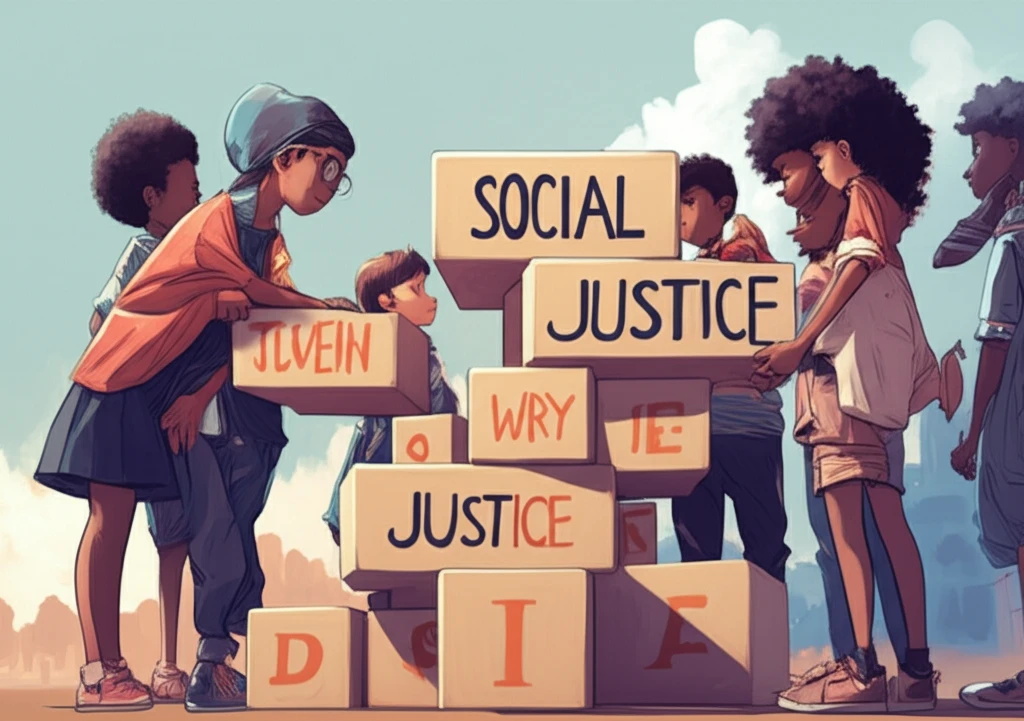
Empowering Change: How Social Justice is Transforming Middle School Education
"Discover how personalized learning environments are fostering social justice, giving students the voice and agency to shape a more equitable world."
In today's rapidly evolving world, the importance of social justice education cannot be overstated. Middle schools, in particular, serve as crucial environments for fostering critical thinking, empathy, and a sense of responsibility among young learners. As highlighted in a recent study focusing on Rolling Hills Middle School, personalized learning models are emerging as powerful tools for integrating social justice into the curriculum, empowering students to become active participants in shaping a more equitable future.
Traditional educational approaches often fall short in addressing the complex nuances of social justice, leaving students ill-equipped to navigate the challenges of an increasingly diverse and interconnected world. However, innovative models like the one implemented at Rolling Hills are demonstrating the potential to revolutionize how social justice is taught and learned. By prioritizing student voice, agency, and collaborative learning, these personalized environments are fostering a deeper understanding of social issues and inspiring students to take action.
This article delves into the groundbreaking work at Rolling Hills Middle School, examining how their personalized learning model is fostering a generation of socially conscious and engaged citizens. We'll explore the key principles of their approach, the challenges they've faced, and the transformative impact it's having on students and the wider community.
The Rise of Personalized Learning for Social Justice

Rolling Hills Middle School embarked on a journey to revolutionize its educational approach by implementing a personalized learning model within one of its houses, comprising 50 eighth-grade students. This innovative model prioritizes collaborative work among students and empowers them with choice and agency, fostering independence and a sense of ownership over their learning. A qualitative case study was undertaken, utilizing student and teacher focus groups, interviews, classroom observations, and artifacts to meticulously document the implementation of this model during its inaugural year.
- Students and teachers are actively engaged in purposeful learning experiences.
- The curriculum is designed to be challenging, exploratory, integrative, and relevant to students' lives.
- The school environment fosters a sense of belonging, safety, inclusivity, and support for all members of the community.
- Students have agency and ownership over their learning.
Empowering a Generation of Changemakers
The experiences at Rolling Hills Middle School offer a compelling example of how personalized learning environments can cultivate a generation of socially conscious and engaged citizens. By prioritizing student voice, agency, and collaborative learning, educators can empower students to become active participants in shaping a more equitable and just world. As schools continue to evolve, embracing innovative models like the one at Rolling Hills will be crucial in preparing students to navigate the complexities of the 21st century and become effective agents of change in their communities and beyond.
